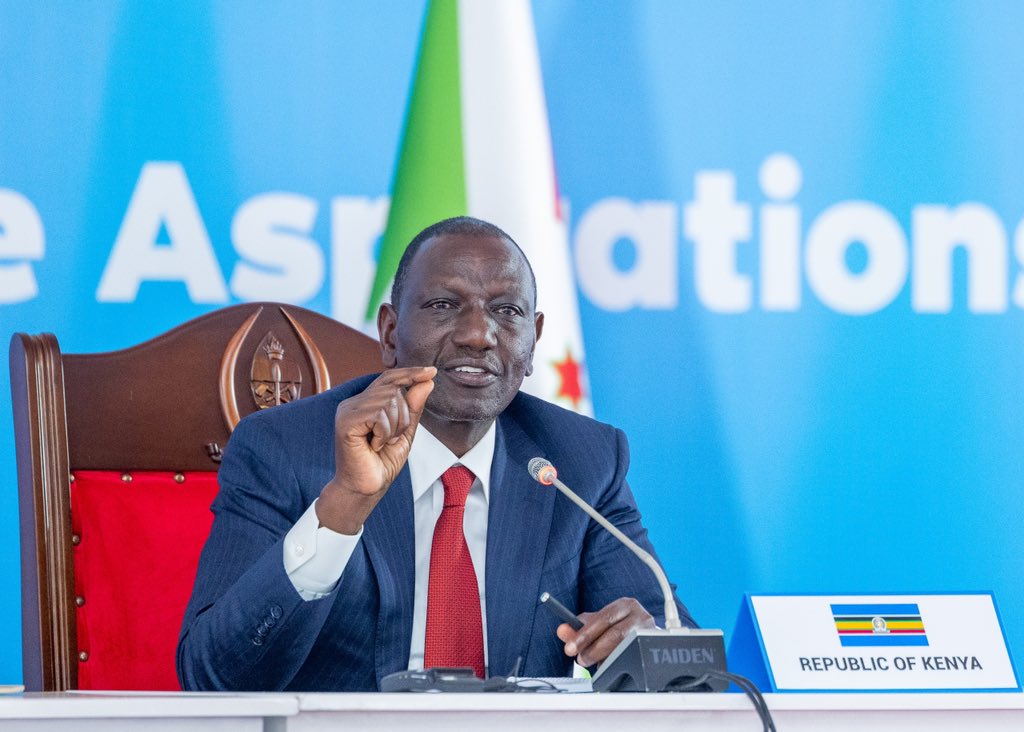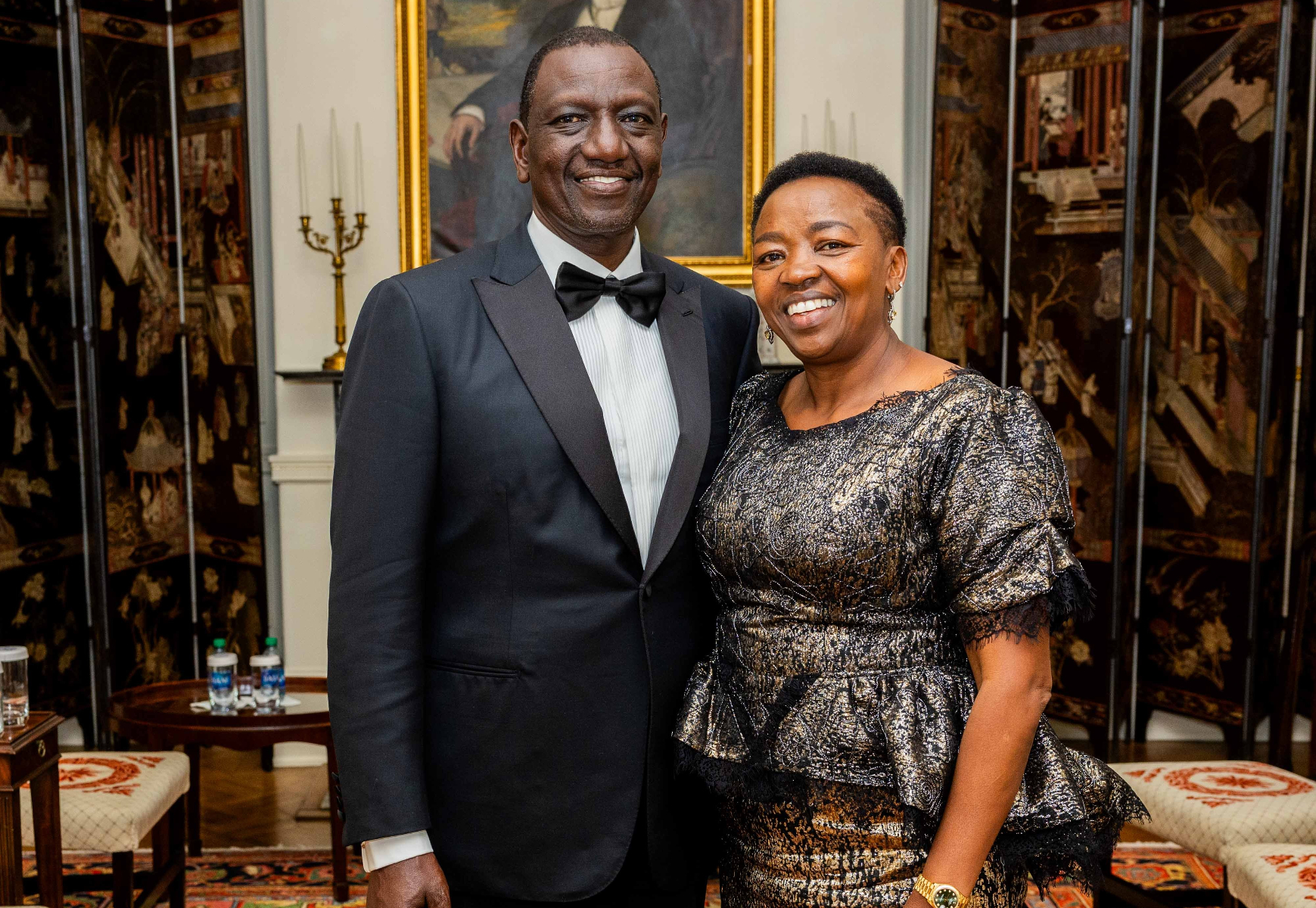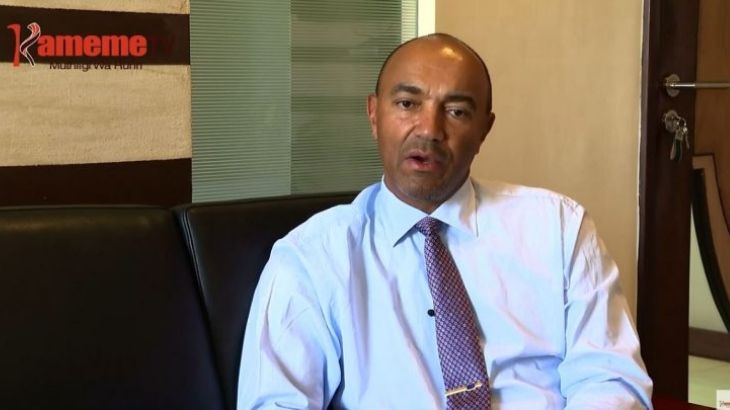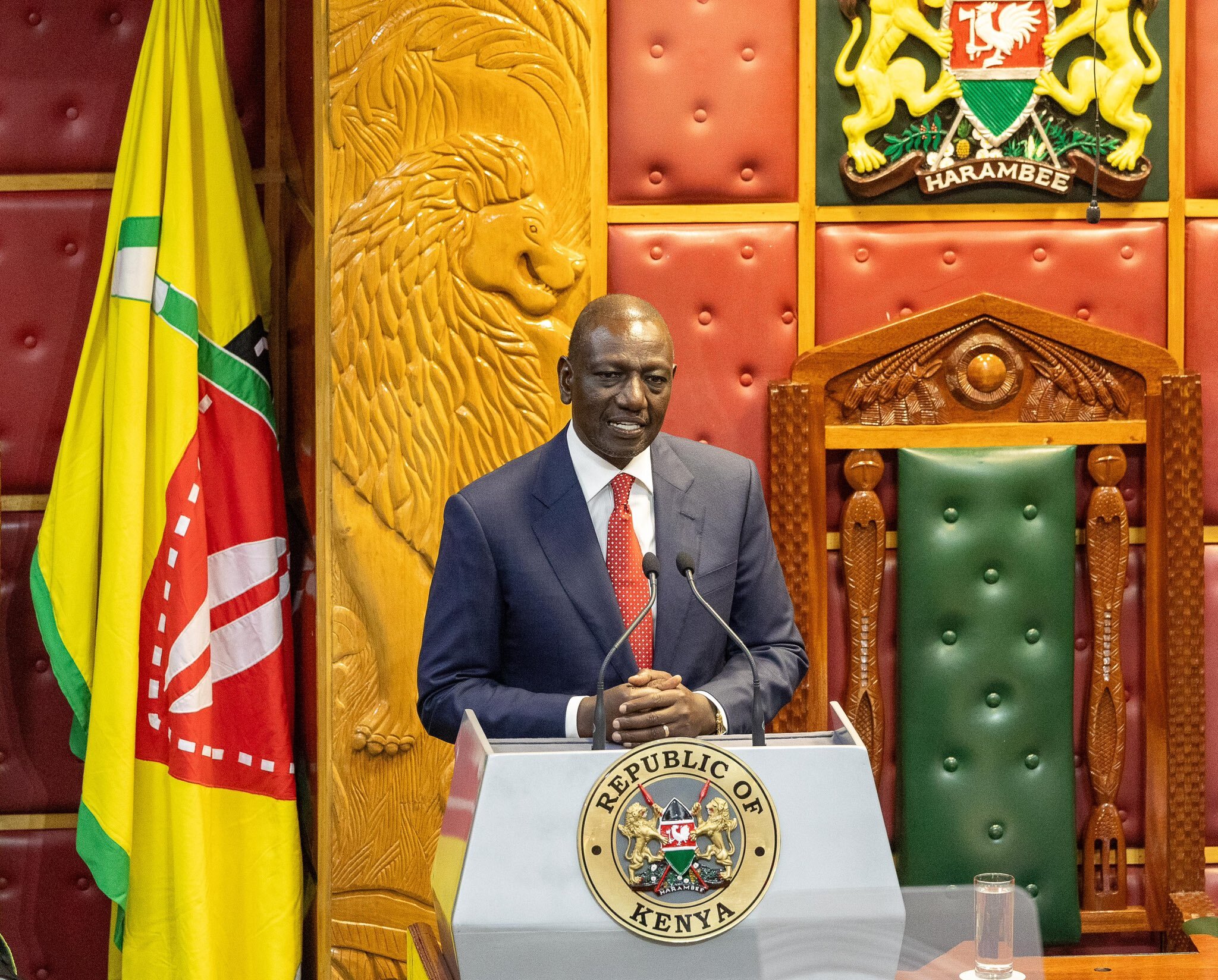Lawyer-cum-activist Morara Kebaso has publicly called for President William Ruto to be sued for blocking an ordinary citizen on social media platform X (formerly Twitter).
Morara’s comment was in reaction to X user @PsychoHub_ who had been blocked by Ruto on his official account @WilliamsRuto.
In his tweet, Morara argued that it is illegal for any government official to block a citizen on social media, describing it as a blatant violation of Article 33, which guarantees freedom of expression, and Article 35, which ensures access to information.
He also emphasized that such action constitutes unfair administrative conduct, contrary to Article 47 of the Constitution.
Morara called the act an impeachable offence and urged that the case be taken to court urgently.
“It is illegal for any government official to block a citizen on social media. Its a blatant violation of Article 33 on the freedom of expression and Article 35 on access to information. It also constitutes unfair administrative action contrary to Article 47 of our constitution. This is an impeachable offense. This case needs to go to court urgently,” Morara posted on his X account on Friday, December 20, 2024.
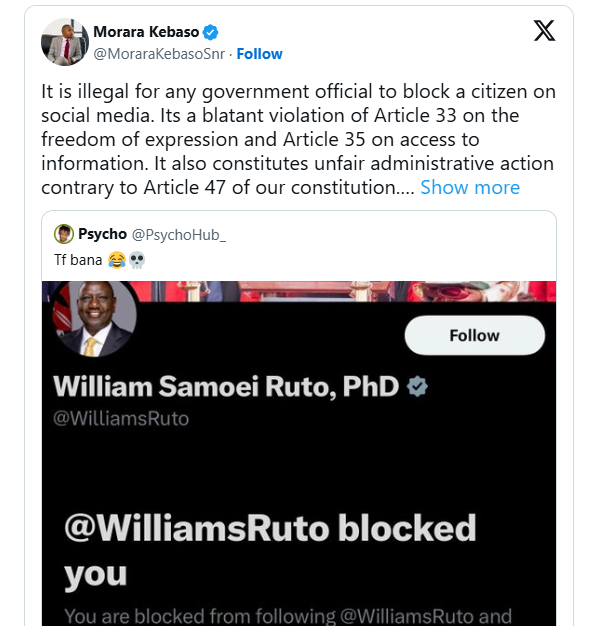

Constitutional breaches?
Morara’s statement hinges on several key articles of the constitution.
Article 33 guarantees the right to freedom of expression, including the freedom to seek, receive, and impart information.
This provision is fundamental in protecting citizens’ ability to engage with public officials, including the President, through digital platforms.
Additionally, Article 35 affirms the right of access to information held by the state, which is seen as a crucial aspect of fostering transparency and accountability in governance.
Morara’s argument is that blocking citizens, especially on platforms where public discourse occurs, is tantamount to limiting access to information and stifling free speech.
Article 47 of the Constitution further protects citizens from unfair administrative actions, ensuring that government actions are lawful, reasonable, and procedurally fair.
Morara, who seeks to vie for president in 2027, contends that blocking a citizen is not only a denial of their right to express themselves but also an act of arbitrary administrative decision-making.
While Ruto has not publicly commented on the issue, the call for legal action has gained significant traction, with many in Kenya’s legal and political circles now weighing in on the matter.
If taken to court, the case could test the boundaries of social media usage by public figures, particularly when it involves interactions with citizens.

